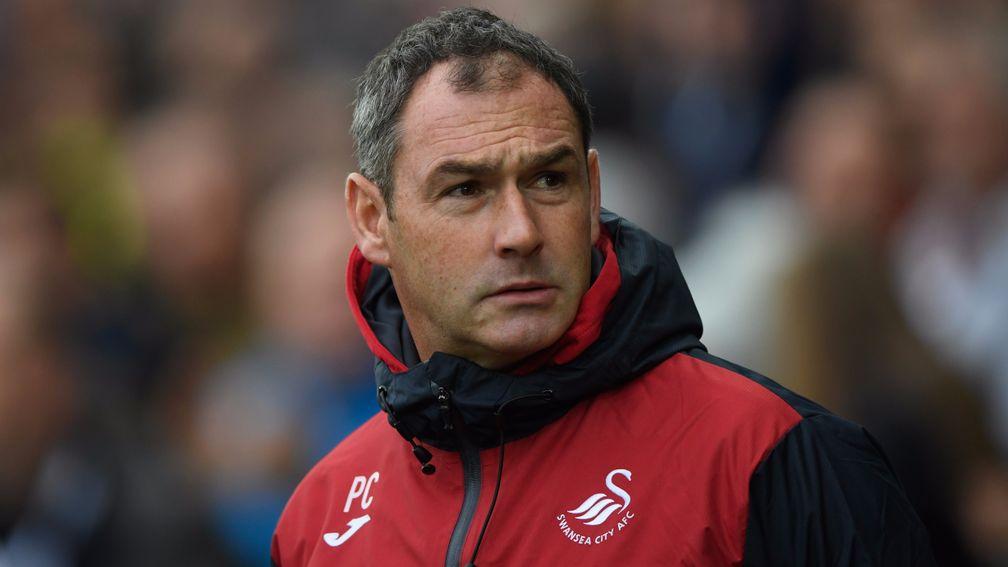Good form tends to be more reliable indicator than bad
The Soccer Boffin shares more pearls of wisdom

If Manchester City beat Bournemouth on Saturday they will end the first half of the season with 55 points out of a possible 57. How many might they have when the season is over?
A reasonable expectation would be 100 – not double 55, but not much below.
There are no direct precedents. No team won more than 52 points in the first half of any previous Premier League season. But there are indirect precedents. There are relationships for all sorts of other numbers between points in the first and second halves of seasons.
We can extrapolate from those to predict how many points a team might have after 38 games if they have 55 after 19 games.
The answer when I do the sums is 100.
Teams who do well in the first half of a season tend to do less well in the second half – though still better than most. Teams who do badly in the first half of a season tend to do better in the second half – though still not as well as most.
But there is an interesting difference in how these changes take place. High-performing teams tend to deteriorate by a smaller amount than low-performing teams improve. So good form tends to be more reliable as an indicator of future results than bad form. It is harder to be spectacularly good by accident than spectacularly bad.
What this means is that usually there should be little difference over the second half of a season in expectations for most of the 14 non-elite Premier League teams, no matter how they performed in the first half.
Last week I wrote about the discrepancy between the league position and stats of teams such as Burnley and Crystal Palace. It is there whether you consider expected goals, a fashionable new stat, or simply total shots for and against. Over anything more than a few games they generally tell similar stories.
More by Kevin Pullein
Goals change games but our odd punting rituals stay the same
Pulis sacking shows owners' failure to grasp probability
Growing trends of teams doing better when ahead
Teams happy to be more adventurous on home soil
Winning becomes more important with a big clash on the horizon
Burnley were in a possible European place but had the chance-related stats of a team near the relegation line. Palace were below the relegation line but had the chance-related stats of a team near the European places. Since then Burnley have kept winning and Palace have started winning. With a different roll of the ball from the beginning of the season each could be in the other’s position.
As a rule, there is not much difference in ability between non-elite teams – everyone apart from Manchester City, Manchester United, Chelsea, Liverpool, Arsenal and Tottenham. If one non-elite team gain more points than another over a number of games they might be slightly better but, more likely than not, they were also lucky.
Success equals skill plus luck, as Nobel Prize winner Daniel Kahneman said. Any differences in skill that exist in the first half of a season are likely to exist in the second half as well. But there is no reason to think that a team who were lucky before will be lucky again.
Premier League teams will play their 19th game on Friday or Saturday. By Saturday night Burnley could have 35 points and Swansea could be bottom with as few as 12. The gap between them could be as big as 23 points. Expectations for the second half of the season, though, should perhaps differ by no more than six points.
What happened in previous seasons suggests that non-elite teams who win 35 points in their first 19 games average 26 points from their second 19, while teams who win 12 points in their first 19 games average 20 points from their second 19. On average the difference over the second half of a season is just six points.
Published on 19 December 2017inSix Nations
Last updated 16:57, 19 December 2017
- Ireland v Scotland Six Nations predictions and rugby betting tips
- France v England Six Nations predictions and rugby betting tips
- Wales v Italy Six Nations predictions and rugby betting tips
- Wales v France Six Nations predictions and rugby betting tips
- Italy v Scotland Six Nations predictions and rugby betting tips
- Ireland v Scotland Six Nations predictions and rugby betting tips
- France v England Six Nations predictions and rugby betting tips
- Wales v Italy Six Nations predictions and rugby betting tips
- Wales v France Six Nations predictions and rugby betting tips
- Italy v Scotland Six Nations predictions and rugby betting tips